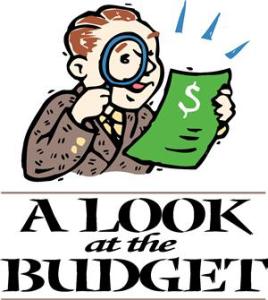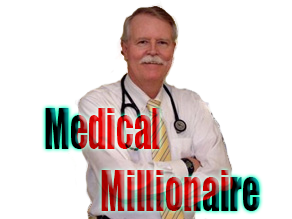 I had a conversation recently with a younger doctor that I have known for some time and whom I initially recruited to join our local hospitalist group. He was asking my advice concerning an offer he had received from a competing hospital system for essentially the same job and benefits, but a higher salary. The salary differential was about 5% of his current salary.
I had a conversation recently with a younger doctor that I have known for some time and whom I initially recruited to join our local hospitalist group. He was asking my advice concerning an offer he had received from a competing hospital system for essentially the same job and benefits, but a higher salary. The salary differential was about 5% of his current salary.
This doc, who we will call “Ben”, was tempted, as several other hospitalists in the area have been, to hop around various hospitals in the state in order to edge up their salaries. Ben is an excellent physician, and I certainly wanted him to stay around locally as I might need his services acutely someday.
But I tried to be objective and business-like, and give advice appropriate to his situation. I asked him, “Ben, do you want to chase income or do you want to become wealthy?”
He looked at me quizzically and said, “Aren’t they the same?”
“No, grasshopper, they are not the same.”
As my father used to say, it’s sometimes not how much you make; it’s how much you keep. If you increase your salary, but then just increase your expenditures, you are no better off other than the fleeting improvement in your lifestyle. In Ben’s case, his increased commuting costs and the aggravation of learning a new EMR system made this increase in salary a wash.
 However, I saw this a teachable moment to discuss my financial philosophies to the next generation of physicians. I told him that his current salary is a good base from which to start. His emphasis going forward should actually be to develop more than one stream of income.
However, I saw this a teachable moment to discuss my financial philosophies to the next generation of physicians. I told him that his current salary is a good base from which to start. His emphasis going forward should actually be to develop more than one stream of income.
For physicians, “moonlighting” in off hours is a common mechanism for another stream of income. Over the years, starting in residency and extending well into my practice years, I did extra work in ERs, covering various inpatient services and nursing homes on call to supplement income.
 In my financial psychology, I used the extra income for a specific purpose, meaning that it did not just go into the general household budget. Since it was extra income, I assigned it saving for a next vehicle (I haven’t had a car loan in 30+ years), paying off residual debt such as a student loan, paying down a mortgage, kids college loan fund, or more retirement savings to reach whatever was the maximum allowable contribution at the time.
In my financial psychology, I used the extra income for a specific purpose, meaning that it did not just go into the general household budget. Since it was extra income, I assigned it saving for a next vehicle (I haven’t had a car loan in 30+ years), paying off residual debt such as a student loan, paying down a mortgage, kids college loan fund, or more retirement savings to reach whatever was the maximum allowable contribution at the time.
True wealth, I told Ben, comes from financial freedom. It comes from having the ability to pay for what you want to have or do without worry about the future.
As I said above, I haven’t had a car loan in over 30 years. My wife and I paid her law school tuition and the college expenses of both of our sons in cash and without loans. Any mortgage we have had on our properties has been, or will be, paid off early.
 We have always contributed the max to our IRAs and 401Ks as allowable by law at the time. As a result, we have no non-deductible loan interest, rapidly decreasing mortgage balances which will be paid off well before we retire, and a very healthy and steadily increasing retirement fund thanks to continued contributions and the markets.
We have always contributed the max to our IRAs and 401Ks as allowable by law at the time. As a result, we have no non-deductible loan interest, rapidly decreasing mortgage balances which will be paid off well before we retire, and a very healthy and steadily increasing retirement fund thanks to continued contributions and the markets.
Ben was skeptical in that no one had ever talked to him in these terms before. Not his parents and not any medical mentors.
Time will certainly tell because in a financial plan, time can be a blessing or a curse depending on how much you have. The power of compounding rewards those who make even small changes early on.
Otherwise, they are going to need to make painful changes later. I personally never want to be one of those people who bemoans their retired years because they are “on a fixed income.”








